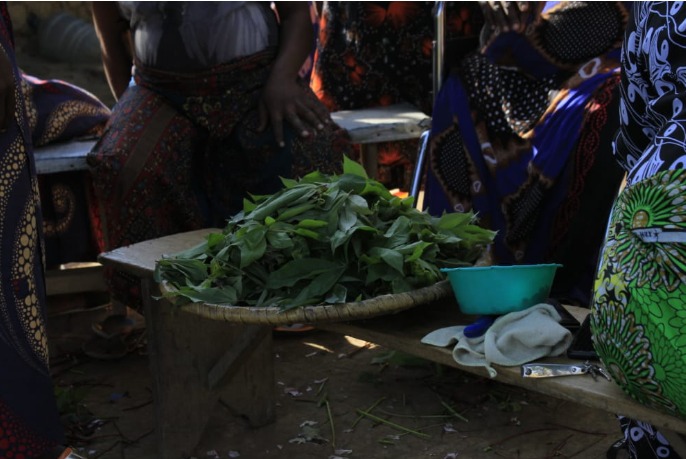For many adolescent girls and women living in refugee settlements, access to sexual and reproductive health and rights (SRHR) is a daily battle. Cultural taboos, lack of information, economic hardship, and insecurity make it nearly impossible for them to access essential healthcare services.

joined Davision in 2017 ,which taught me about my rights and empowered me to stand up for myself and others.(Mutesi )
At Kyaka II refugee settlement Uganda , girls like Maombi, a teenage mother from the Democratic Republic of Congo (DRC), face these challenges firsthand. Her story sheds light on the urgent need for better healthcare, education, and support systems for refugee girls.

Maombi is a teenage mother fighting for a better future.
A 17-year-old refugee from the DRC, arrived at Kyaka II refugee settlement after escaping war and violence in her home country. Along the way, she was sexually assaulted, and by the time she reached Uganda, she discovered she was pregnant.
She was alone, afraid, and unsure of what to do. She Faced Judgment from her community , As an unmarried teenage mother, Maombi feared the stigma of seeking prenatal care and Lack of financial support she struggled to access basic necessities like food and clothing.
She is still processing the horrors of war and sexual violence, making it difficult to focus on her future.
Refugee Girls Struggle to Access SRHR

1. Cultural and Social Stigma
In many refugee communities, discussing sexual and reproductive health is considered shameful. Young girls who seek contraception or pregnancy-related services are often judged or even shunned by their own families. This fear prevents many from seeking the care they need.
2. Lack of Information
Many adolescent girls don’t even know where to go for SRHR services. With little to no education on reproductive health, they are left vulnerable to unplanned pregnancies, unsafe abortions, and sexually transmitted infections (STIs).
3. Language Barriers
Refugee settlements bring together people from different linguistic backgrounds. Many healthcare providers do not speak the languages of the refugees, making it difficult for girls to communicate their needs or understand medical advice.
4. Economic Hardship
For refugees with little to no income, healthcare costs even when services are free can be a major barrier. Many cannot afford transport to clinics, hygiene products, or nutritious food, putting their health at risk.
5. Fear and Insecurity
In some cases, girls face threats of sexual violence when trying to access healthcare services. Others are exploited, forced to trade sex for basic needs like food, water, or shelter. This fear keeps many girls from reaching out for help.
Community Support
Despite these hardships, Maombi found support from organizations working in Kyaka II to help young mothers at DaVision Organisation, which provides Sexual/Mental health education, family planning counseling, and life skills training, giving Maombi a safe space to learn about her health and options.
“I feel like I have a new life now. One that is free from abuse. With the support of a Davision Was able to begin healing from the trauma and move forward with new hope.”
Through mentorship and our skills building program Maombi learned tailoring skills that now help her earn an income. Maombi safely gave birth to her child. She is now learning how to become financially independent and dreams of creating a better future for herself and her baby.
What Needs to Change?
While Maombi’s story is one of resilience, many refugee girls still struggle without support. Here’s what we can do to change that:
Improve access to Adolescents/SRHR education so that girls understand their rights and options.
Create safe spaces where they can seek healthcare without fear of stigma or violence.
Provide economic opportunities to help young mothers become self-sufficient through partnering with Women Led Organisation.
Break the stigma surrounding reproductive health so that no girl is afraid to seek help.

No girl should have to fight so hard to access basic healthcare. Refugee adolescent girls and women deserve dignity, safety, and the right to make informed choices about their bodies and futures.
Maombi’s story is just one of many, but it serves as a reminder that with the right support, these young women can reclaim their lives and build a future filled with hope.




